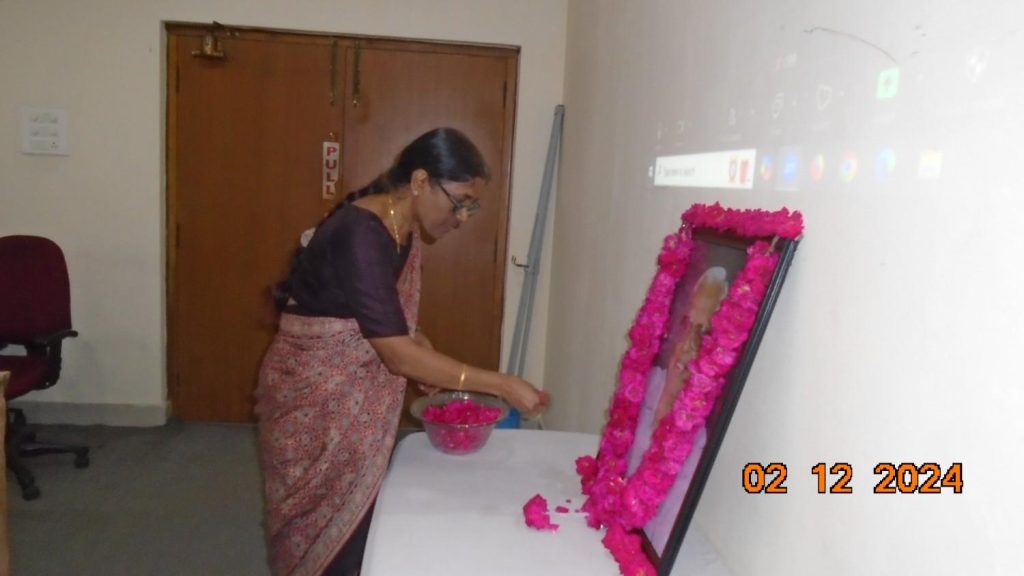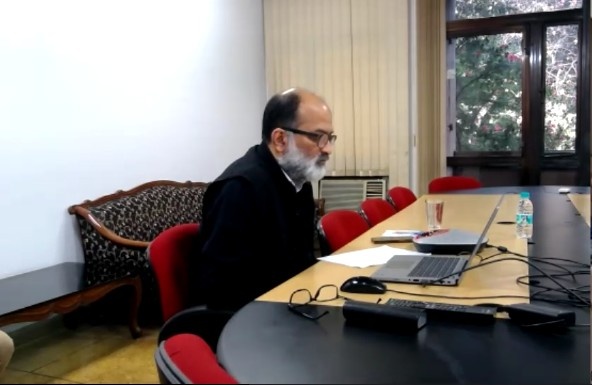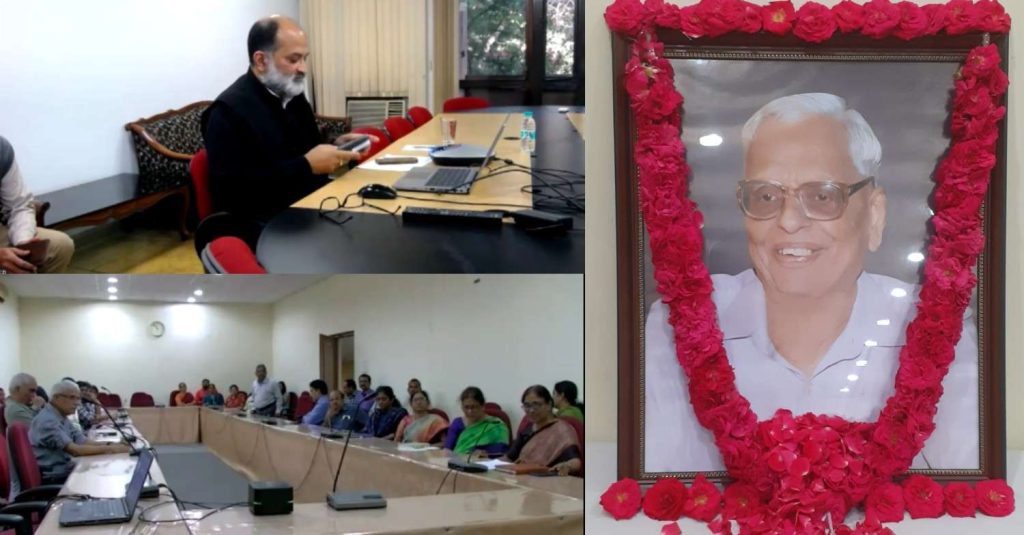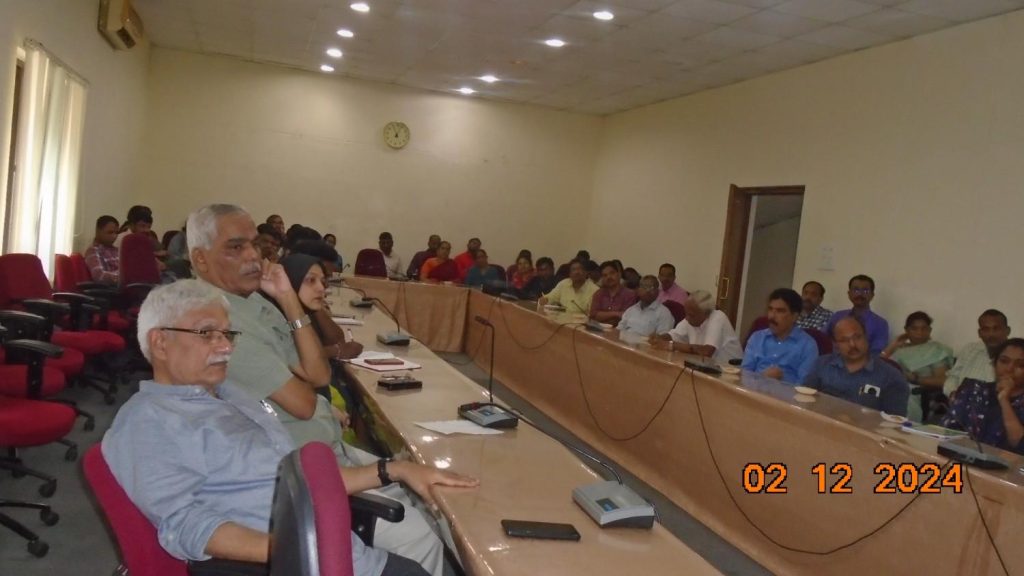



The Centre for Economic and Social Studies (CESS) commemorated the 97th birth anniversary of Shri B.P.R. Vithal on Monday, 2nd December 2024, at the Seminar Hall of the B.P.R. Vithal Auditorium.
Prof. E. Revathi, Director of CESS, warmly welcomed the Chief Guest, Dr. Pinaki Chakraborthy, Visiting Distinguished Professor at NIPFP and Vice-Chairman of IDS-Jaipur, along with Dr. C. Ram Manohar Reddy, faculty, guests, and research scholars. She highlighted Shri B.P.R. Vithal’s significant contributions and legacy, emphasizing his role as the Founder and first Chairman of CESS.
She noted that Shri B.P.R. Vithal positioned the institute as an autonomous national institution bridging academicians and policymakers. Along with co-founders Dr. G. Rami Reddy, Dr. S.K. Rao, Prof. Ch. Hanumantha Rao, and Dr. Waheeduddin Khan (the first Director of the Centre), he established CESS with a vision of academic excellence and policy relevance. She also highlighted his influential research paper, The Telangana Surpluses: A Case Study, which played a key role in shaping the demand for a separate Telangana state.
Dr. Pinaki Chakraborthy delivered a lecture on “Issues Before the 16th Finance Commission of India: Fiscal Balance, Fiscal Space, Fund Flow, and Sub-National Fiscal Risks.” He addressed the fallout of the pandemic and its impact on the present macroeconomic context. He emphasized the surge in global debt during the pandemic, which reached nearly 100% of GDP in 2020, and its implications for fiscal solvency and debt sustainability. Although tightened fiscal and monetary policies in many countries have led to a decline in global public debt to 92% of GDP, this remains 8 percentage points above pre-pandemic projections. Highlighting parallels with global trends, he noted that India has demonstrated impressive post-COVID growth and fiscal recovery, with significant reductions in both debt and deficit levels from their peaks. However, India’s debt ratio is still notably higher than other emerging market economies (EMEs).
Dr. Chakraborthy identified key issues, including the need for a flexible fiscal framework focusing on capital expenditure, transparent mechanisms to address off-budget borrowing and liabilities, and the importance of a harmonized guarantee management law to enhance fiscal transparency. He also proposed several strategies for the way forward: target debt-GSDP ratio as a part of the FRBM framework of states, a timebound elimination of revenue deficits to strengthen fiscal balance and boost capital expenditure, redesigning on-lending programs to enhance fiscal prudence at the state level, and improving Public Financial Management (PFM) by creating comprehensive data on Public Sector Borrowing Requirements (PSBR). Additionally, he stressed the need for a medium-term debt reduction strategy with a clearly quantified path and the development of a harmonized guarantee framework to mitigate off-budget fiscal risks and promote fiscal transparency.
